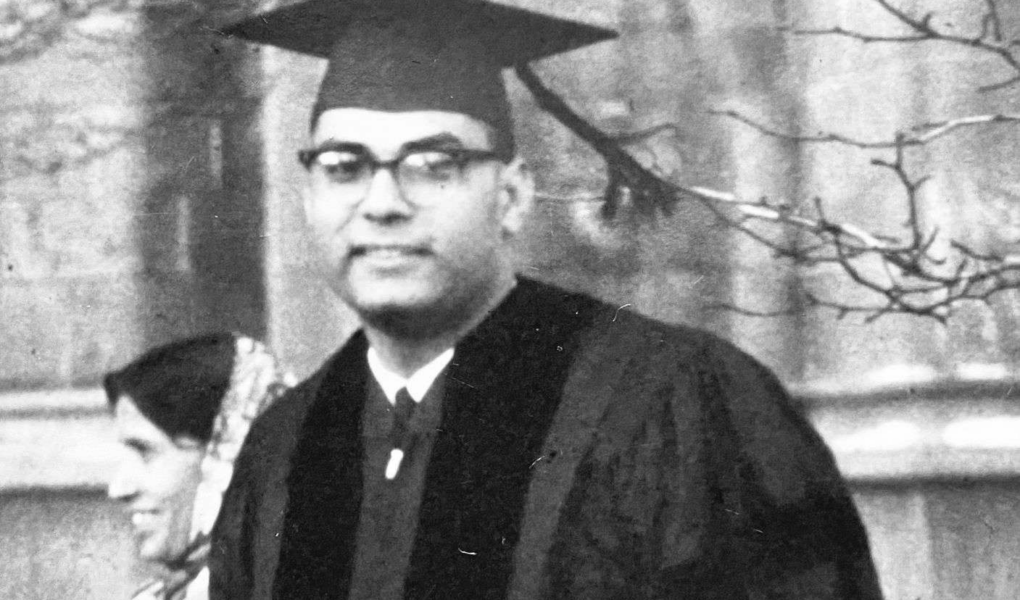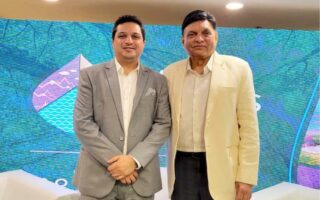22 August, 2024 — Dr. Taleshwar Sharma’s life and work exemplify the transformative power of education and the advancement of scientific understanding. This article celebrates his pioneering contributions to geochemistry and his pivotal role in modernizing scientific education in India.
Early Life and Journey to Fulbright Scholarship
Dr. Taleshwar Sharma was born on October 31, 1932, in the small village of Bali-Pakar in Bihar. Despite the challenges of rural life under British colonial rule, his mother, Rukmini Devi, encouraged his education. Starting school at age eight, he quickly excelled, securing scholarships and excelling academically at Ular Middle School and Bharatpura High School.
After high school, Dr. Sharma enrolled at B.N. College and later Patna Science College, where his passion for chemistry blossomed. Despite facing financial hardships and health issues, his perseverance and dedication led him to excel academically. His achievements at Patna University, where he ranked first in both B.Sc. and M.Sc., earned him the prestigious Fulbright Scholarship.
The Fulbright Scholarship and the University of Chicago
Dr. Sharma’s journey to academic excellence was significantly boosted by the prestigious Fulbright Scholarship, which enabled him to pursue his Ph.D. at the University of Chicago. This opportunity was a turning point in his career, providing him with the resources and environment to excel in his research. At the University of Chicago, he worked under the guidance of distinguished professors, including Prof. Henry Taube, a Nobel Laureate, and Prof. Robert Clayton.
Prof. Robert Clayton, in particular, played a crucial role in Dr. Sharma’s academic development. As his Ph.D. advisor, Prof. Clayton mentored him through critical stages of his research. Dr. Sharma’s work on isotopic ratios under Prof. Clayton’s supervision became highly influential, laying the foundation for future research in geochemistry. The supportive environment at the University of Chicago, combined with the rigorous academic training, helped Dr. Sharma develop a deep understanding of his field, which he later brought back to India to inspire and educate future generations.
Pioneering Research
Dr. Sharma’s groundbreaking research on isotopic ratios has had a lasting impact on the field of geochemistry. His innovative method for determining the age of sedimentary rocks has provided valuable insights into geological processes and climate change. The isotopic ratio method, focusing on the ratios of O18 and O16, has become a cornerstone in geochemistry. This method has enabled scientists to accurately date sedimentary rocks, offering a deeper understanding of Earth’s geological history and climate variations. Dr. Sharma’s work is widely cited and respected globally, cementing his legacy as a trailblazer in geochemistry.
Educational Reforms
At both IIT Kanpur and Bihar University, Dr. Sharma implemented significant educational reforms that modernized curricula, established state-of-the-art research laboratories, and introduced innovative teaching methodologies. His efforts have significantly elevated the standards of scientific education in India.
IIT Kanpur: Dr. Sharma’s tenure at IIT Kanpur was marked by the establishment of a Mass Spectroscopy laboratory, fostering collaboration with international scientists, and advancing his research while enriching the academic environment. His influence helped shape the institution into a premier center for scientific education and research.
Bihar University: Facing considerable challenges, Dr.Sharma’s dedication to transforming Bihar University was unwavering. As the Head of the Chemistry Department, he overhauled outdated curricula, introducing modern atomic structures, reaction mechanisms, and recent research concepts. His efforts extended beyond the classroom; he established new laboratories and facilitated workshops to train teachers, ensuring the smooth transition to the updated syllabus. Dr. Sharma’s reforms turned the Chemistry Department into a model institution, inspiring other universities to follow suit.
Mentorship and Influence
Dr. Sharma was a dedicated mentor, inspiring countless students to pursue careers in science. His commitment to education and research has left a lasting legacy, with many of his students now contributing to scientific advancements worldwide. His innovative teaching approach, which balanced theoretical knowledge with practical applications, prepared students to tackle real-world challenges in their respective fields.
Notable Students and Lives Touched:
• Dr. S.K. Sharma: A former Ph.D. student at IIT Kanpur, now a distinguished professor of chemistry at a leading university.
• G.S. Pandey: Another Ph.D. student who has made significant contributions to environmental chemistry.
• N.V. Pillai: Renowned for his work in organic synthesis and currently leading a major research institute.
• R.S. Thakur: Whose research in biochemistry has garnered international acclaim.
• Kaushal Kishor Singh: A prominent researcher whose work in analytical chemistry has been highly influential.
• Chandra Deo Rai: An environmental scientist whose research has advanced the understanding of climate change impacts.
• Shivadhar Singh: A leading academic known for his contributions to physical chemistry.
• Dr. Meena Kumari: Known for her pioneering work in pharmaceutical chemistry.
• Dr. Anil Sinha: A key figure in polymer science, recognized for his innovative research.
• Dr. Ravi Verma: An expert in nanotechnology, leading cutting-edge research in the field.
Enduring Legacy
Dr. Taleshwar Sharma’s legacy of dedication and innovation in geochemistry and educational reform has profoundly impacted science and education, inspiring future generations. His life’s work exemplifies the power of determination and the transformative impact of education. As we honour his memory, his enduring legacy continues to inspire and guide new generations of scientists and educators.




